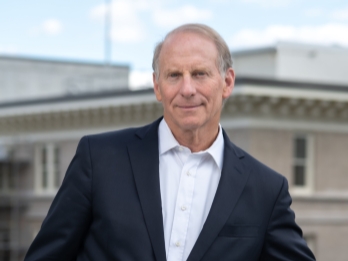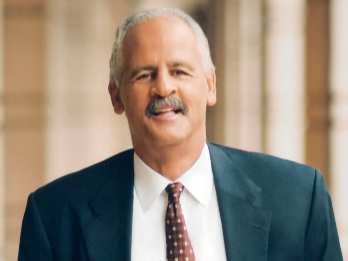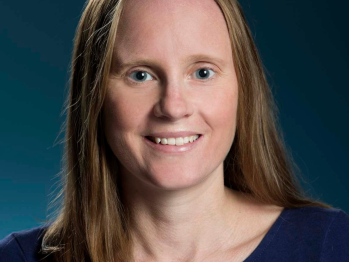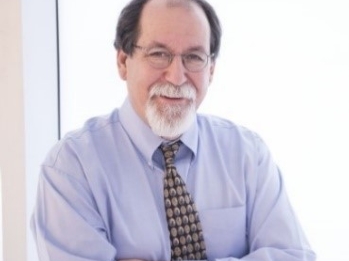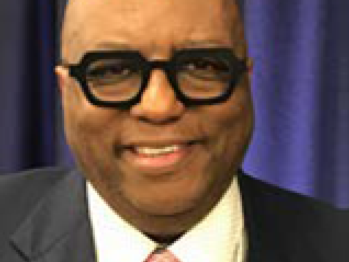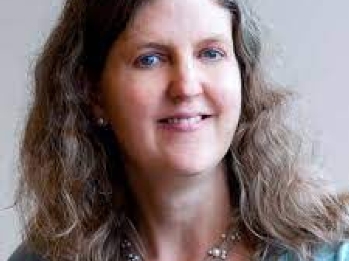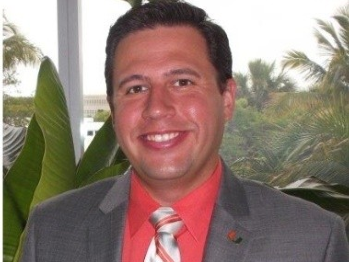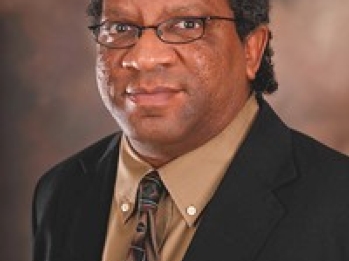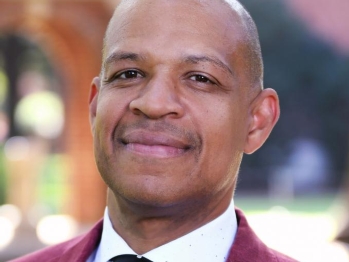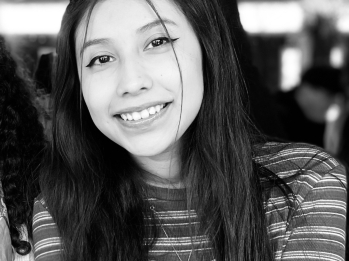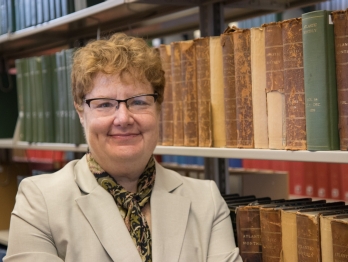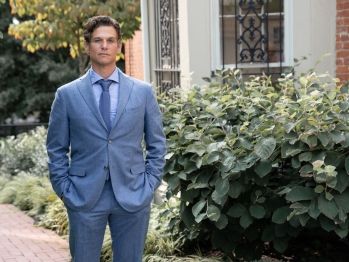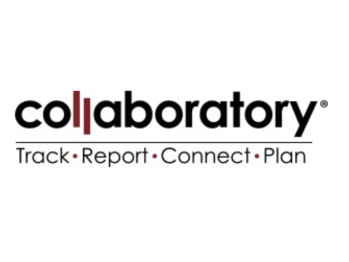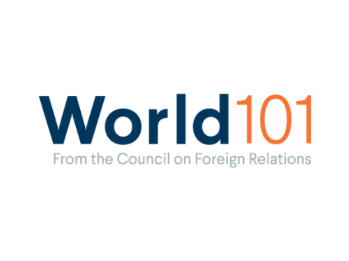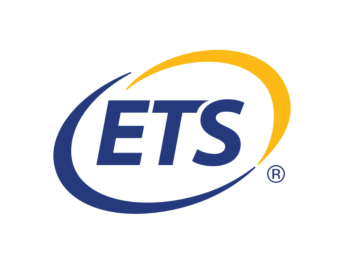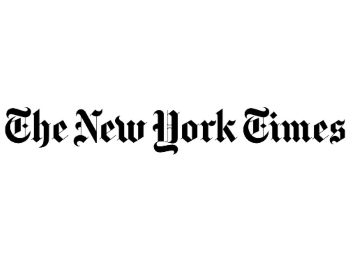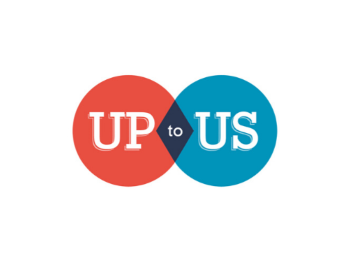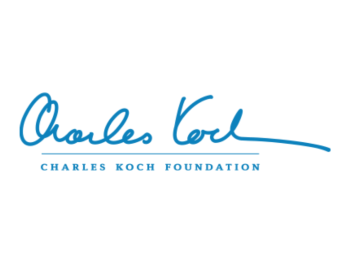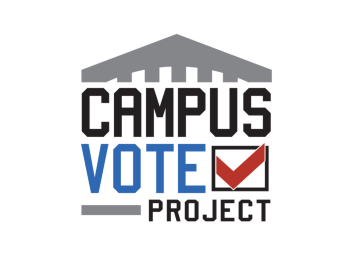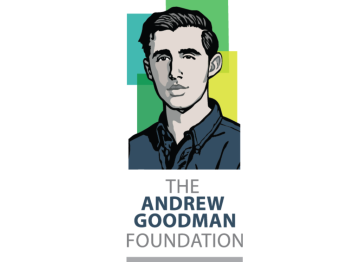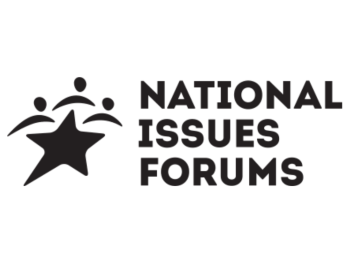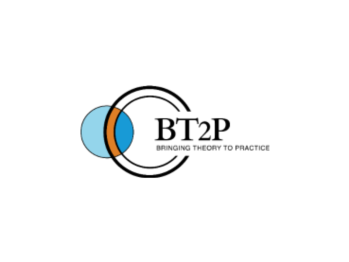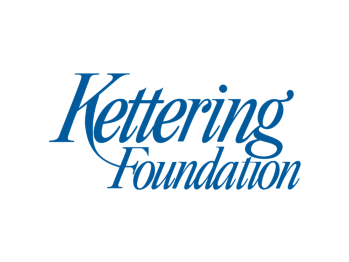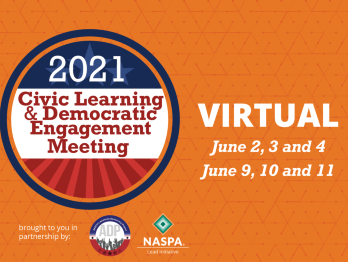
Civic Learning and Democratic Engagement Meeting 2021
Division/Group Events
June 2 - June 11, 2021
We are going virtual for CLDE 2021!
The 2021 Civic Learning and Democratic Engagement conference brings together faculty, student affairs professionals, students, senior campus administrators, and community partners. Together we will ensure that students graduate from our colleges and universities, both public and private, prepared to be the informed, engaged citizens our communities and our democracy need.
This year's event will take place on the following dates:
- June 2, 3, and 4, 2021
- June 9, 10, and 11, 2021
Participants will have opportunities to network and develop their civic-minded thinking and practices through engaging plenary sessions, informative general interest sessions, interactive workshops, and roundtable discussions.
Use the hashtag #CLDE21 to connect with other attendees and see what everyone is sharing during the conference!
Presented By
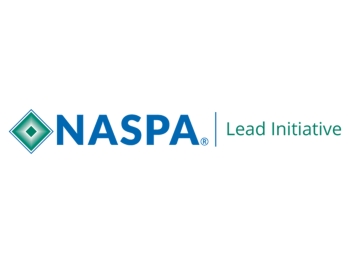
Keynote Speakers
Registration
Registration fee includes all program sessions and materials.
|
Registrant Type |
Early Bird Rate |
Regular Rate |
Late Rate |
|
General Registration |
$125 |
$150 |
$175 |
|
Student Registration |
$50 |
$50 |
$50 |
|
Team (4 or more individuals from the same institution) |
$100 per person |
$100 per person |
|
Registration rate for students is for undergraduates and full-time graduate students at AASCU/ADP and NASPA colleges and universities.
*PLEASE NOTE that in order to obtain the team rate, you must contact Jill Dunlap at [email protected] with the names of the team members you wish to register (each team member must be from the same institution to qualify). Before registering, you will need to ensure that each team already has an acount in the NASPA system which is free to create.
Schedule
All times listed are in Eastern Daylight Time.
Schedule
June 2
June 3
June 4
June 9
June 10
June 11
12:00 PM - 1:00 PM
Engagement Opportunity
Details
An Enlightened Bite (June 2, 12-1pm ET, on Socio): Join us for a Virtual Lunch Meet-up. You can eat, chat, network, & laugh. On the Socio app, you’ll click on An Enlightened Bite and be able to choose your table, move between tables, and enjoy meeting fellow conference attendees during this casual meet-up.
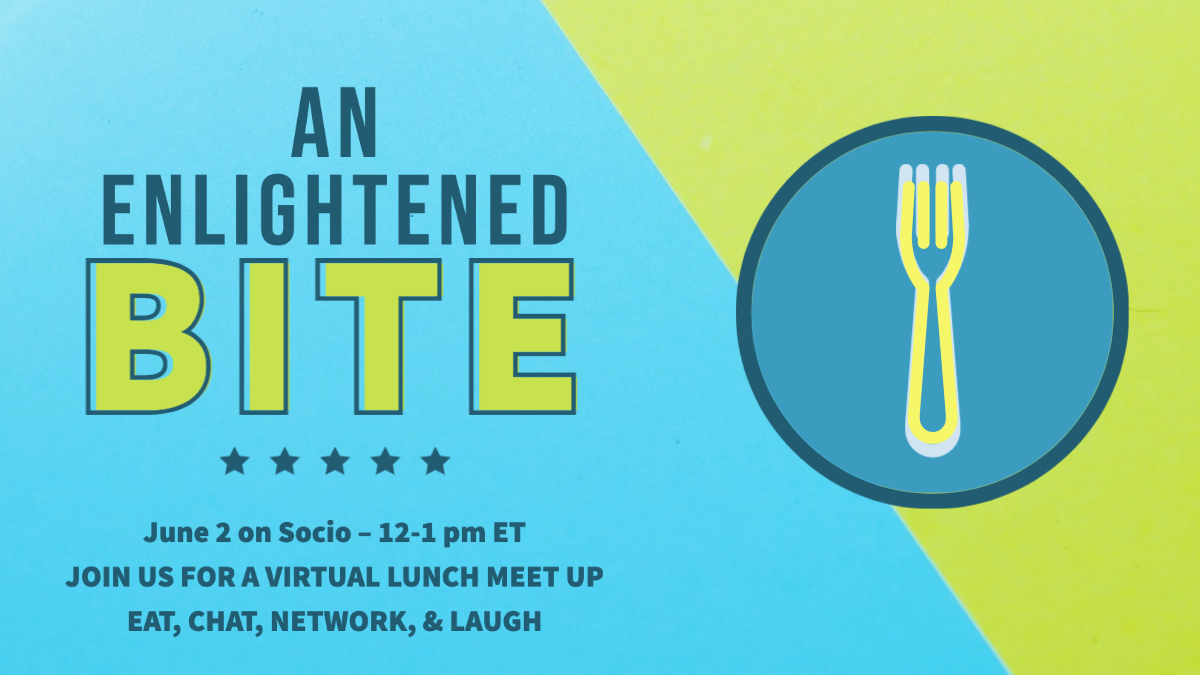
1:00 PM - 1:45 PM
First Time Attendee Orientation
Details
Is this your first time at CLDE? Or would you just like to meet some fellow attendees?
Join us at the First-Time Attendees Orientation! We’ll meet others and build relationships while we explain what CLDE is and how to build a great CLDE experience. We’ll provide some helpful tips to choose which sessions to attend, provide a glossary of terms commonly heard during the conference, and explain the CLDE Theory of Change.
Our main objective is to welcome YOU to CLDE so that you feel comfortable in the space. We’re so glad to have you here!
2:00 PM - 2:45 PM
Office Hours
If you have questions about the conference technology or anything at all, please click on this link and ask Cathy, ADP Program Coordinator.
3:00 PM - 3:30 PM
Mentorship Meet-Up
4:00 PM - 5:30 PM
Opening Plenary Session: Democracy and the Interdependent Global World
Speaker: Richard Haass, President of the Council on Foreign Relations
11:00 AM - 12:15 PM
Special Topics Sessions
Details
Solutions to Bridging Divides on Campus
Exposure to difference is a core ingredient of a vibrant campus culture, but unfortunately during such divisive times, difference becomes a source of tension as opposed to an opportunity for learning and growth. Leaders in higher education play an essential role in facilitating the conditions for students to be informed and engaged citizens, but also how they engage, scrutinize, and interact with ideas and individuals with different customs, experiences, and circumstances.
How can leaders navigate challenges, implement programs, and share resources that foster long-term solutions? First, we must develop an understanding of the underlying causes of intolerance and what it looks like to bridge divides while still learning from our differences. Join academic and community leaders in this session which will break down what lies at the roots of division and share details about a program created to address those divisions and advance a peaceful and open campus culture.
Presenters:
Sarah Ruger, Vice President, Free Speech & Peace
Kurt Gray, Associate Professor of Psychology and Neuroscience, University of North Carolina at Chapel Hill
Shamil Idriss, Chief Executive Officer, Search for Common Ground
Adam King, Senior Coach and Facilitator, Soliya
Leveraging Community Engagement Data to Transform Institutional Strategy and Success
2020 brought unprecedented challenges, but also a unique opportunity to re-examine civic engagement in this new landscape. It encourages institutions to examine community-university partnerships to better address pressing social issues and demonstrate the relevance of higher education, particularly in times of crisis. Learn how a cohort of AASCU campuses is using Collaboratory and its data to advance community engagement, inform institutional strategy, deepen involvement of stakeholder groups, ensure transparency of efforts, identify gaps, and understand impact.
Presenters:
Kristin Norris, Associate Director, Office of School Partnerships, Indiana University
Kristin Medlin, Director of Research and Development, Collaboratory
Lauren Wendling, Collaboratory Customer Success Manager, Collaboratory
Ellen Szarleta, Director of the Center for Urban and Regional Excellence (CURE) and professor in the School of Public and Environmental Affairs, Indiana University Northwest
Elizabeth Parmalee,Associate Vice President of Undergraduate Studies, Metropolitan State University of Denver
Evan Haut, student, Metropolitan State University of Denver
Beyond Left-Right Thinking: Reframing Political Discourse
Although we live in a polarized political climate, we are complex individuals with the capacity to embrace multiple, sometimes conflicting, political perspectives. This session introduces an online tool (The 4Quads Diagnostic) that replaces traditional linear spectrum approaches to framing ideological differences. The diagnostic fosters enhanced critical thinking and diagnostic de-briefing provides opportunities to promote political inclusiveness and explore dissonance generated by individual results. Participants explore the diagnostic and its underlying philosophical frameworks before shifting to applications of public policy topics.
We are looking forward to your attendance at our Session, "Beyond Left-Right Thinking: Reframing Political Discourse." We encourage attendees to participate in the Diagnostic before the session to save session time. Creating a cohort before the session will also allow the presenters time to review the group results in advance of the session. Your participation is anonymous to the presenters and only you will have access to your individual results.
If you choose to share your email address via the Google Form below, you will receive a message to that address from [email protected] with instructions to participate in the diagnostic. Some institutions direct messages from gmail addresses to junk or clutter so you may need to check those folders.
Presenters:
Kimberly Schmidl-Gagne, Program Manager, Keene State College
Patrick Dolenc, Professor of Economics, Keene State College
Leah Murray, Brady Presidential Distinguished Professor, Weber State University
Teresa Martinez, Student Engagement Coordinator, Center for Community Engaged Learning, Weber State University
12:30 PM - 1:15 PM
Concurrent Sessions
Details
Truth-Telling and Meaning Making in Civic Discourse
As many people search for words to describe the shared experiences of the past year, we all yearn for time, space, and guidance for truth-telling and meaning-making. How do we collectively build meaning of our experiences related to the movement for Black lives, the global COVID-19 pandemic, and the 2020 presidential election? What role does critical dialogue currently play in crafting a holistic and equitable vision of our civic future and calls for action?
Presenters:
David Blount, Engage Democracy Fellow, Washington University in St. Louis
Louis Jones, Engage Democracy Fellow, Washington University in St. Louis
Theresa Kuou, Assistant Director for Civic Engagement Education, Washington University in St. Louis
Our Success with Civic Learning and Democratic Engagement: FTIC Students and the Town Hall Model
Tarleton State has initiated a number of ADP models following visits to Chico State in 2015. The most successful of these has been the Tarleton Town Hall, which is in its fifth year. Data from FTIC cohorts from 2016-2018 show that the Town Hall HIP is having a significant impact on retention and persistence, averaging between 20-23% higher for students who participate compared to those who do not. The impact is consistent for first generation students and those who identify as Hispanic or Latino.
Speakers:
Eric Morrow, Dean and Associate Professor of Political Science, Tarleton State University
Casey Thompson, Tarleton State University
Marcie Reynolds, Tarleton State University
Self-care as Activism
As students deal with multiple challenges tied to COVID, economic disparities, political turbulence, and racism, the idealized, Instagram version of self-care feels entitled and overly simplistic. Health and wellbeing became a major campus initiatives at Texas Woman's University three years ago. Over the last year, our focus has shifted to the essentials of self-care through an activist lens. Learn how we are building resources and programming that encourage all students to not only build resiliency, but thrive.
Presenters:
Michelle Kelly-Reeves, Director, Health and Wellbeing Initiative, Texas Woman's University
Tamara Starling, Graduate Assistant and Doctoral Student, Texas Woman's University
Cindy Okemwenkhase, Graduate Assistant and Masters Student, Texas Woman's University
Higher Education Policy Update: Federal & State Priorities in 2021
Many of the issues occupying the minds of public policymakers around the country are directly related to the day to day work of higher education professionals. This session will provide a broad overview of the current federal and state policy landscape related to higher education. It is expected that the session will cover the progress of federal legislation related to the COVID-19 response, Higher Education Act, and Title IX; and state policy measures related to finance, free speech, guns on campus, and more.
Presenters:
Diana Ali, Associate Director of Policy Research and Advocacy, NASPA-Student Affairs Administrators in Higher Education
Thomas Harnisch, Vice President of Government Relations, State Higher Education Executive Officers (SHEEO)
1:30 PM - 2:00 PM
Civic Cafe Sessions
Details
Promoting Civic Discourse Using a Campus Climate Podcast – “Making a Better [New]”
On every campus, there are some topics that are difficult to navigate. New College's Office of Outreach and Inclusive Excellence has found a thoughtful way to engage the campus community and encourage engagement and discourse about the campus climate. The “Making a Better [New]” podcast series creates space for the students, faculty, and staff of New College of Florida to share reflections and think critically about our campus community and how to make it better for all of us.
Presenters:
Kimberly Grainger, Assistant Vice President for Academic Administration, New College of Florida
William Woodsen, Chief Diversity Officer and Dean of Outreach, New College of Florida
Stacey Campo, Director of Community Engagement, New College of Florida
Steven Keshishian, 4th Year Student, New College of Florida
Choose Civility: A Model of Community Civic Engagement
Choose Civility (a model of civil discourse) has successfully engaged the community with college students at Allegany College of Maryland. Utilizing virtual format during COVID, Choose Civility dialogues, have focused on democracy, racial inequality, and other humanitarian issues that require collective organizing to enact change. After presenting the model, we will invite others to share their strategies and end with a Q&A. Find out more about the Choose Civility model at https://www.alleganycountylibrary.info/choose-civility.
Presenter:
Diane McMahon, Faculty Director, College to Community Partnerships, Allegany College of Maryland
Forging a Path Forward by Encouraging Critical Thinking in the Midst of Polarization and “Post-Truth” Skepticism
If democracy is a process, then how can higher education forge a path to ensure democracy's success when faced with obstacles such as toxic polarization and “post-truth” skepticism? We seek to position higher education as a place where students can examine traditionally held beliefs and become more flexible in their ability to critically analyze claims, both in and out of the classroom. We maintain that, at their root, many of the capacities in the Theory of Change are fundamentally critical thinking skills forged in campus classrooms, training, and events. One of the most effective ways to teach and apply critical thinking skills, a hallmark of democracy, is through dialogue; a difficult task given current polarization and rampant, post-truth, relativism. In this Civic Café, we seek to generate best practices for fulfilling CLDE's capacity for Civic Inquiry by focusing on the following areas: Establishing an epistemology in our respective courses/functions Exploring the impact of choices on different constituencies and communities (from self to planet) The deliberate consideration of differing points of views when students/participants may not agree on truths/facts? The ability to describe and analyze civic dialogue within one's field, major, or areas of study.
Presenters:
Steven D. Koether, Program Coordinator/Instructor, Sam Houston State University
William J. McKinney, Senior Advisor for Regional Campus Affairs, Indiana University
Applied Learning Across the Curriculum: Promoting Social Responsibility and Civic Engagement
Abstract:
Student dissatisfaction with the General Education program at SUNY Cobleskill and an increasing failure rate has spurred faculty and administrators to rethink institutional learning outcomes and instructional models on campus. Starting with a redesigned plan to map general education skills to updated institutional learning outcomes, SUNY Cobleskill is launching a partnership between faculty and their students and members of the Antarctic Artists & Writers Collective to promote global environmental action through the connection of Science & Humanities.
Presenters:
Susan Jagendorf-Sobierajski, Executive Director of International Education, SUNY Cobleskill
Gail Wentworth, Interim Dean, SUNY Cobleskill
2:15 PM - 2:45 PM
Civic Cafe Sessions
Details
Call of Duty: Engaging Young People in Election Administration
Election Officers play a critical but often overlooked role in a representative democracy, serving on the front lines of election administration. The need for election officers increased in 2020 as a result of the COVID-19 pandemic and the higher risks the coronavirus poses to older adults. In the 2018 general election, around six-in-ten U.S. poll workers (58%) were ages 61 and older, including roughly a quarter (27%) who were over 70 (Pew Research Center). As a result, young people, who are traditionally not as engaged in elections as their counterparts in older age demographics, had the opportunity to learn more about elections, election administration, representative democracy, while contributing to the broader public good in their communities.
Presenters:
Charles Conner, Student, James Madison University
Madilyn Topik, Student, Weber State University
Kaylei Morris, Student, Weber State University
Neha Saju, Student, Rutgers University-New Brunswick
Jessica Ronan, Program Coordinator, Center for Youth Political Participation, Eagleton Institute of Politics
Creating Room for Social Justice: Classrooms that Foster Campus Civic Ethos
In a world of civic unrest, we are convinced that students are our best hope for creating a sustainable democracy. We will share our experiences with creating student-designed and led courses that dive into social justice issues. By transferring ownership of the learning experience to the students and unleashing their intellectual and creative talents, we provide room for them to explore difficult but necessary issues, listen to diverse perspectives, and develop strong voices extending throughout their professional and social lives.
Presenters:
Bekah Selby, Assistant Professor of Economics, Emporia State University
Rob Catlett, Director, Centers for Economic Education and Community Research, Emporia State University
Connecting the Public Good to Your Institution's Path Forward in Regional Accreditation
As institutions prepare for regional accreditation or reaccreditation (regardless of geographic region), civic learning and democratic engagement leaders are essential campus leaders in providing evidence for criteria that showcase how colleges provide public service and respond to the greater good of communities. This Civic Cafe session will provide CLDE staff members with insight from two CLDE professionals who have recently led the work of providing compelling evidence for such criterion for a regional reaccreditation visit.
Presenters:
Brett Bruner, Dean of Student Engagement, Arkansas Tech University
Chelsea Lairamore, Interim Assistant Dean for Campus Life, Arkansas Tech University
Engaging Community: An Experience Implementing a Place-Based Community Engagement Initiative
Institutions of higher education are increasingly encouraged to incorporate high-impact educational practices into the curriculum. Southern Methodist University implemented a place-based community engagement program at their eleven residential colleges to meet exposed community needs and fulfill student graduation requirements. Come review this place-based community engagement initiative; learn the Engage Dallas initiative structure; understand built-in student learning measures; and discuss lessons learned in the first year of implementation.
Presenters:
Dustin Grabsch, Director, Academic Initiatives, Southern Methodist University
Melinda Carlson, AVP & Dean, Southern Methodist University
Madison Mucci-Ferris, Residential Community Director, Southern Methodist University
Staphany Lopez-Coronado, Assistant Director, Office of Social Change and Intercultural Engagement, Southern Methodist University
Camille McCallum, Program Specialist, Office of Engaged Learning, Southern Methodist University
3:00 PM - 3:45 PM
Concurrent Sessions
Details
Building comprehensive campus engagement: Lessons from Salisbury University
Since 1999, the Institute for Public Affairs and Civic Engagement (PACE) has built a suite of programs promoting civic learning and democratic engagement among members of our campus and surrounding community. Programs in three strands help to target the overlapping civic needs of students, faculty/staff, and unaffiliated community members. This session brings the faculty directors and student and community participants together to discuss the practices and evaluation strategies that help PACE identify strategies and test outcomes for democratic intervention.
Presenters:
Alexander Pope, Associate Professor of Education, Director PACE, Salisbury University
Carolina Bown, Visiting Professor, Department of Communication, Campus Director of the Nonprofit Leadership Alliance, Salisbury University
Ryan Weaver, Lecturer, PACE, Salisbury University
Michael Webber, Coordinator, PACE, Salisbury University
Institutionalizing Deliberative Dialogues
Illinois State University has gone from piloting deliberative dialogues in four classes one semester to conducting 55 dialogues in both curricular and co-curricular spaces. Over 400 students, faculty/staff, and community members experienced a deliberative dialogue in the spring 2021 semester. This experience builds skills essential for a thriving democracy and contributes to an in-depth exploration of wicked problems. Presenters will provide information on the operationalization of deliberative dialogues on campus along with key stakeholders and assessment of learning.
Presenters:
Harriett Steinbach, Assistant Director, Center for Civic Engagement, Illinois State University
Jamillah Gilbert, Assistant Director, Curriculum Services, Illinois State University
Dana Karraker, Coordinator, Faculty Development, Illinois State University
HamVotes a Hamilton Project: How to imagine campus civic engagement as a campus wide project
Presented with the challenge to increase campus voter registration and ballot completion by 13 total percentage points, Hamilton College's HamVotes Executive Committee and Student Ambassador team set out to strategically manage the challenge and achieve outcomes in a year with unprecedented difficulties and barriers. The two staff co-chairs of the HamVotes Executive Committee look forward to sharing the importance of strategic planning for voter registration, education and ballot access in addition to the value of campus partners and plug-and-play resources.
Presenters:
Kaity Stewart, Assistant Director of Student Activities, Hamilton College
Paola Lopez, Director of the Days-Massolo Center, Hamilton College
Developing Leadership Values and Skills through Experiential Civic Engagement and Advocacy
The Malave Leadership Academy (MLA) at The City University of New York offers an advanced level of co-curricular opportunities for student leaders. MLA provides students with the necessary tools to develop their advocacy skills and learn how to identify and access key city, state, and federal government stakeholders. MLA is ideal for students who are interested in community service, having an impact on public policy or wish to participate in the political process.
Presenters:
Ahmed Osman, Student Life Specialist, The City University of New York
Shahreen Laskar, University Associate Director of Student and Residence Life, The City University of New York
Stephane Duviella, Student, Hostos Community College, The City University of New York
Mariama Faye, Student, Borough of Manhattan Community College, The City University of New York
Raagni Malhotra, Student, John Jay College of Criminal Justice, The City University of New York
4:00 PM - 5:30 PM
The Future We Want to Make Together
Details
Join us for an interactive session to share ideas and plans with NASPA and ADP colleagues. First, we’ll hear from Mark Kassen, as he shares a resource for addressing partisan polarization. Then, we’ll have time to connect with all colleagues through a participatory and interactive session. Using Google Jamboards and breakout rooms, we’ll connect faculty, student affairs staff, administrators, and students and have generative discussions about the path forward.
11:00 AM - 12:15 PM
Special Topics Sessions
Details
Build Global Literacy with World101 and Model Diplomacy
What is required to thrive in a world where challenges like viruses and carbon emissions and opportunities like markets and scientific breakthroughs know no borders?
This question propels both Model Diplomacy and World101, CFR Education's innovative classroom products. Together, these online learning resources form the foundation of a global civics curriculum, empowering young people with the essential knowledge, skills, and perspective to be responsible citizens, take on the challenges of global competition, and steer through partisan rhetoric and disinformation.
Presenters:
Justin Schuster, Associate Director of Education with the Council on Foreign Relations
Tara Jayaram, Assistant Editor, CFR Education
The Importance of Cultivating Economic Literacy for College Students
How the federal government budgets and spends money affects us all -- from how much we are investing in climate change and infrastructure to interest rates and student loan debt. However, students don’t often have the economic literacy required to understand the implications that economic policy-making and the national budget have on their futures. Why should college students care about their fiscal future? What methods can be used to help students gain a better understanding of their economic and fiscal future? Join Up to Us, a non-partisan program that empowers students to learn about the impacts of federal fiscal policy and promote bipartisan collaboration, for a conversation on the importance of this topic for young people. You will leave the session with ideas and tools for how to cultivate economic literacy for your students.
This is an excellent session to attend if you are interested in participating in the Economic Literacy Project. The Economic Literacy Project is a joint initiative between Up to Us and ADP looking to engage AASCU institutions in a one-year initiative aimed at improving economic literacy among U.S. undergraduate students by creating curricular and co-curricular programming.
Presenters:
Diane Lim, economist and author, EconomistMom Blog
Venoo Kakar, Associate P
Partners for Impact: Discussing Community Engagement through Ethnodrama
This data-driven session encourages meaningful discussion among attendees regarding power dynamics and tensions in university-community partnerships (UCPs). Arts-based research is performed in the form of an ethnodrama where actors portraying student, faculty, and community partners share stakeholder experiences with UCPs. The ethnodrama presents engaging examples from stakeholders including racism and discrimination, tenure and promotion guidelines, and lack of mutual benefit. This impactful presentation of data highlights timely issues in engagement. As a way to promote inclusion and connection in communities, UCPs, when intentionally initiated and maintained, can be catalysts for transformative teaching and learning.
Presenters:
Judithanne Scourfield McLauchlan, Associate Professor of Political Science & Director Center for Civic Engagement, University of South Florida St. Petersburg
Veronica Matthews, Office Manager of Innovative Education, University of South Florida St. Petersburg
12:30 PM - 1:15 PM
Concurrent Sessions
Details
Peers Serving Peers: Addressing the Needs of Food Insecurity During a Global Pandemic
During the unprecedented times of 2020, the food and resource pantry at the University of Nevada, Reno evaluated resources, made adjustments, and executed new innovative ways to provide food-based necessities to students facing food insecurity during COVID. Utilizing our late night safety service, another student led resource, our campus was able to continue our food pantry services during the pandemic. This session will dive into the relationship between programs, data, and suggestions on how to execute similar partnerships at your institutions.
Presenters:
KaPreace Young, Coordinator, Student Engagement Outreach, University of Nevada, Reno
John Atkinson, Coordinator, Programs and Services, University of Nevada, Reno
Fostering Democratic Engagement Across Disciplines by Embedding CliftonStrengths into Core Disciplinary Competencies
This session will provide attendees with examples of how to identify core competencies and learning objectives in their courses and how to map and/or cross-list those competencies with CliftonStrengths. This exercise will teach attendees how to engage students in their talents in the classroom as well in other areas and aspects of their lives that have civic influence. These examples will be related to experiential learning, internships, and community engaged learning.
Presenters:
Sheldon Cheshire, Coordinator of Leadership Programs, Weber State University
Cory Moss, Program Director, Dept of Health Administration, Weber State University
Deliberative Dialogue Institute: Building democratic practices to scale
In 2021, the American Democracy Project launched the Deliberative Dialogue Institute (DDI) with a piloted cohort of members. Please join organizers to share their experiences and to announce the official launch of the larger DDI institute with a call for participants.
Presenters:
Kara Lindaman, Professor of Political Science/Public Administration, Winona State University
Steven D. Koether, Program Coordinator/Instructor, Sam Houston State University
Harriett Steinbach, Assistant Director, Center for Civic Engagement, Illinois State University
The Civic Minded Faculty: Cultivating a Social Empathy Orientation to Create Transformational Civic Education
What is the role of social empathy in cultivating a thriving democracy through civic education? Participants in this session will learn about Social Empathy, an interdisciplinary conceptual framework used to gain insight into inequalities and disparities that shape people's lives, and to identify steps toward social change (Segal, 2011; Segal, et al., 2017); apply it to curriculum development; and, discuss high-impact practices faculty and practitioners can engage to cultivate social empathy as an essential skill set for the civic-minded faculty.
Presenters:
Bailey Borman, Instructor, Arizona State University
Madelaine Adelman, Professor, Arizona State University
1:30 PM - 2:00 PM
Civic Cafe Sessions
Details
Utilizing World 101 Curriculum to foster Global Civic Literacy in Freshman Seminar and beyond
In the midst of a global pandemic, many students postponed international travel, while advisors and professors sought to engage students in global learning locally. Lehman College participated in the Global Civic Literacy project, developing two “Global Perspectives” learning communities for first-year students. Faculty incorporated World101 curriculum into their courses with the purpose of increasing Global Civic Literacy at home. Join us as we share ideas with one another that can be adapted to foster a thriving democracy for all students.
Presenters:
Amanda Dubois-Mwake, Director of International Programs and Community Engagement Adjunct Faculty Member, Lehman College, City University of New York
Sandra Cortez, Assistant Director of International Programs and Community Engagement Adjunct Faculty Member Lehman College, City University of New York
Improving Basic Needs Access on College Campuses
In this program, we will present findings of a community-based participatory research on food and housing (basic needs) insecurity among college students. Additionally, we will discuss the importance of an on-campus organization which aims improve basic needs access at UMBC. By the end of the session, participants are expected to understand the phenomenon of basic needs insecurity, share best practices to address the problem (during and after the pandemic), and exchange knowledge/skills to form an ongoing network of resources.
Presenters:
Fariha Khalid, Adjunct Instructor, University of Maryland Baltimore County
Samantha Fries, Graduate Assistant, University of Maryland Baltimore County
Not just for voters: Including ineligible voters in the creation of a civically engaged campus climate
This session will explore the imperative to include ineligible voters in higher education democratic engagement initiatives. Presenters from the Gephardt Institute for Civic and Community Engagement at Washington University in St. Louis will share the data-informed successes and shortcomings of events designed to engage the university's international student body in democracy during the 2020-21 academic year. During the session, participants will be engaged in identifying goals, strategies, and promising practices for addressing the civic knowledge and skill building needs of ineligible voters.
Presenters:
Rose Shapiro, Civic Education Fellow, Gephardt Institute for Civic and Community Engagement - Washington University in St. Louis
Theresa Kouo, Assistant Director for Civic Engagement Education, Gephardt Institute for Civic and Community Engagement - Washington University in St. Louis
2:15 PM - 3:00 PM
Concurrent Sessions
Details
Mobilizing Students to Vote During COVID-19
As campuses and communities across the country struggled to adapt and cope with the COVID-19 pandemic, many traditional means for educating and mobilizing young voters in the 2020 Elections were rendered obsolete. Drawing on faculty and student experiences, this session explores how different campuses innovated to engage students and lessons learned for future organizing in ever-evolving and complex environments where digital organizing is playing an increasingly important role. Session participants will have an opportunity to share their own experiences and will leave with a toolkit of ideas.
Presenters:
Carah Ong Whaley, Associate Director, James Madison Center for Civic Engagement
Elizabeth Bennion, Professor Political Science, Indiana University South Bend
Leah Murray, Brady Presidential Distinguished Professor, Weber State University
Allison Rank, Professor, SUNY Oswego
Elizabeth Matto, Director Eagleton’s Center for Youth Political Participation (CYPP), Rutgers University
Bridging the Gap Between Local and Global: A Triangular Model of Cross-Campus Collaboration
For decades now scholars and administrators have engaged in meaningful conversations about the intersection of multicultural and international education. However, practically the connection between International Programs and Multicultural Centers in American Universities has not developed, despite resounding evidence of the benefits for students, staff, and campus communities. In the model we develop, we go beyond the dual dynamic of internationalizing multiculturalism and instead propose one that uses academic curriculum as the glue between the two fields.
Presenters:
Ingrid Bego, Associate Professor of Political Science and International Studies, Western Carolina University
Dana Patterson, Director of Intercultural Affairs, Western Carolina University
Wes Milner, Director of International Programs, Western Carolina University
Digital Literacy 2021: The Path Forward
Digital-media-information literacy efforts of all shapes and sizes have exploded onto the pedagogical scene in the last decade, yet there remains a lack of clarity about just what we mean when we talk about literacy and a lack of cohesion surrounding approaches. This presentation explores the shortcomings of contemporary approaches to digital literacy, while laying out some specific guidelines for how we should be thinking about digital-media-information literacy in the screen-saturated, social media-infused, postdigital media ecologies we all inhabit.
Presenters:
Paul Cook, Associate Professor of English, Indiana University Kokomo
Developing Civic Sense: Implementing disciple-specific civic engagement courses at Piedmont Virginia Community College
Piedmont Virginia Community College (PVCC) began implementing it's new Quality Enhancement Plan (QEP) Civic Sense: Engaging Students in the Civic Life of Their Communities in the fall semester 2020. One of the new initiatives is that students are required to take a Civic Engagement course in their discipline for graduation. The presenters will describe CE course requirements, assessment plans, and faculty support requirements, and they will facilitate a workshop designed to help participants implement CE courses on their campuses.
Presenters:
Connie Jorgensen, Assistant Professor of Political Science, Piedmont Virginia Community College
Anne Allison, Professor of Biology, Piedmont Virginia Community College
Crystal Newell, Director of Library Services, Piedmont Virginia Community College
3:30 PM - 4:30 PM
Plenary Session
Details
Plenary Session: “Civic Learning, Democratic Engagement and Well-Being in America”
Featuring:
Michael Nettles, Senior Vice President and the Edmund W. Gordon Chair of Policy Evaluation & Research Center, Educational Testing Service
Jennifer Kavanaugh, Director, Strategy, Doctrine, and Resources Program, RAND Arroyo Center; Senior Political Scientist; Professor, Pardee RAND Graduate School
Laura S. Hamilton, Associate Vice President of Research Centers, Educational Testing Service
Irwin Kirsch, Ralph Tyler Chair in Large Scale Assessment and Director of the Center for Global Assessment, Educational Testing Service
A discussion of civic learning in America and exploration from multiple perspectives, of the connection between K-12, Policy, Assessment, Higher Education, our understanding of information and truth and the implications for America’s social and human capital and for our democracy.
4:30 PM - 5:30 PM
Game Night
Details
Political Pursuit: Politics, Prizes, and People (June 4 from 4:30-5:30 pm ET): It’s the first CLDE Game Night in history! This will be a fun way to meet new people and broaden your social circle. Randomized teams will compete in a game of wit and memory tied to current events, politics, and everything CLDE. Break out your favorite beverages & snacks, settle in, meet new people, and have some fun! There will be cash prizes!!
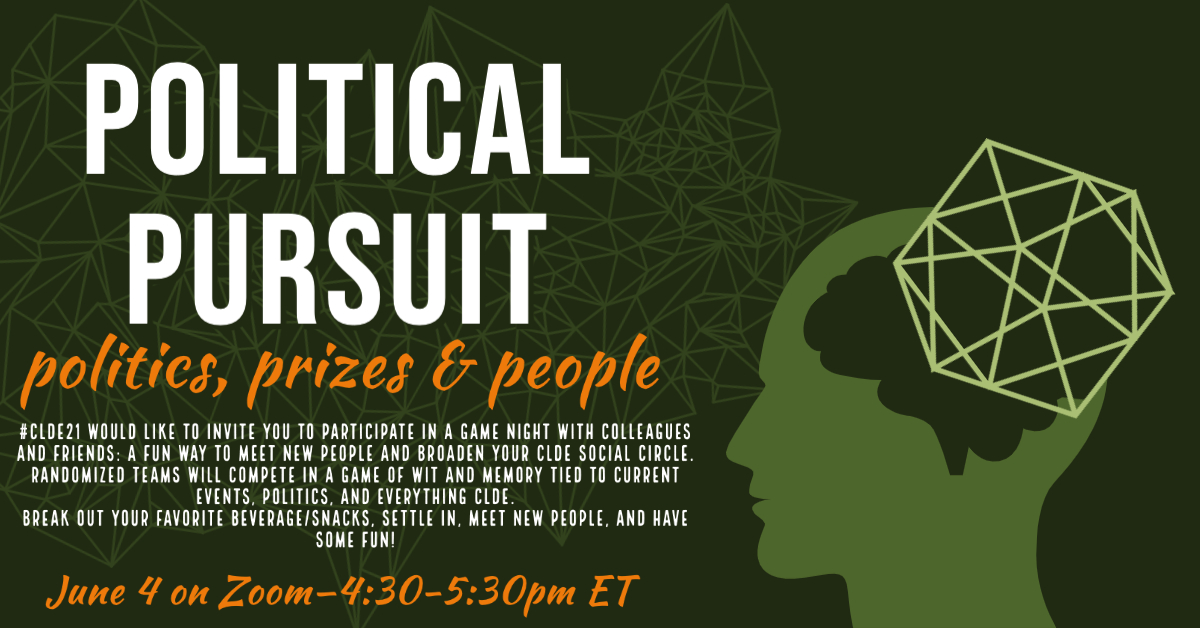
12:00 PM - 3:00 PM
Workshop Sessions
Details
12:00 - 3:00 p.m. ET
Together Beyond: Tools for Our Collective Civic Empowerment
Participants in this workshop will explore concepts and practices aligned with the Civic Learning and Democratic Engagement Theory of Change that can help build solidarity and a sense of collective empowerment within campus communities.
Presenters:
Melissa Baker-Boosamra, associate director of student life, Grand Valley State University (Mich.)
Craig Berger, assistant director of community engaged learning, Kent State University (Ohio)
David Hoffman, director of the Center for Democracy and Civic Life, University of Maryland, Baltimore County
Romy Hübler, assistant director of the Center for Democracy and Civic Life, University of Maryland, Baltimore County
1:00-3:00 p.m. ET
Fraternity and Sorority Life's Role in Creating the Campus Community We Want
Greek organizations across the country help increase civic skill-building as well as civic agency and efficacy among students. Yet sometimes these organizations' relationships with their campus communities are fraught with conflict over a range of behaviors that can cause harm. Join us for a deliberative forum on the role of Greek life in creating institutions that espouse higher education's values.
Presenters:
Kara Lindaman, professor of political science and public administration, Winona State University (Minn.)
Erin Payseur-Oeth, assistant director of community partnerships, University of Mississippi
Diana Ali, associate director of policy, research, and advocacy, NASPA
Citizen Fact-checking for the Digital Age
Ready, set, FACT-CHECK! This interactive workshop session will introduce participants to the practice of citizen fact-checking and model strategies professors can use to teach fact-checking, both virtually and in a face-to-face setting. Faculty will experience the process as students, learning how to increase the accuracy and speed of their own fact-checking process and techniques for dealing with various pedagogical issues.
Presenter:
Michael Caulfield, director of blended and networked learning, Washington State University Vancouver
3:00 PM - 3:30 PM
Mentorship Meet-Up
4:00 PM - 5:30 PM
Plenary Session: Identity, Equity, Income Equality, and Democracy
Plenary Session: Identity, Equity, Income Equality, and Democracy
Featuring: Stedman Graham
5:30 PM - 6:30 PM
Engagement Opportunity
Details
Deep Thoughts and Conversation (June 9 from 5:30-6:30 pm ET): Join us after the June 9th plenary. This will be a casual meeting, where you can switch tables at any point and enjoy where the conversation takes you. Come to talk to old friends, meet new ones, and just chat!

10:00 AM - 11:00 AM
NASPA CLDE Knowledge Community Meeting
Details
11:00 AM - 12:15 PM
Special Topics Sessions
Details
Behind The Story: Navigating this moment, through journalism
What does it take to create journalism is a moment of constant change and evolution? How do you find the story, write the story, design the story, and bring it to life, whether in print, digital, audio, video or even virtual reality? With so many sources, how do you combat misinformation, while remaining balanced and independent? Over the past year, The New York Times has covered some of the largest stories of our lifetime—from the climate crisis, to a national reckoning on race, to the 2020 election, and finally through the ongoing Coronavirus pandemic. Join Kandace Rusnak as she shares behind the scenes insight into how New York Times coverage makes its way into the world and what we've learned about what students seek in our journalism as they also navigate this moment.
Presenter:
Kandace Rusnak, National Director, Education B2B, The New York Times
Civic Learning in Higher Education: Definitions, Assessments, Challenges, and Data Use
Over the past several decades, educators have made it a priority to promote a civically literate society that helps to foster democracy and a growing economy. Various organizations have pushed for initiatives that have promoted frameworks for civic learning in higher education. Most notably, in 2012 the National Task force on Civic Learning and Democratic Engagement, an initiative of the Association of American Colleges and Universities (AAC&U), made an urgent call to higher education institutions to make civic literacy, inquiry, and action part of the educational objectives to be achieved by every college graduate. This “crucible moment” helped to propel the convergence of issues and concerns around civic learning over the past decade and has resulted in more colleges and universities findings ways to increase action and advance civic commitment.
Recognizing the numerous efforts that have been ongoing in this area to make civic learning more prominent at higher education institutions, it is important to understand ways at which we can effectively evaluate whether these efforts have helped to increase students’ levels of civic learning and democratic engagement. In this session, we plan to highlight ways to assess or measure civic learning and make meaningful use of the assessment data. We will start with the discussion of an existing comprehensive framework for measuring civic learning in higher education and discuss how civic learning incorporates other skills such as historical thinking and critical thinking. Following this discussion, we will discuss ways to potentially assess civic learning by considering new item formats and by leveraging other types of assessments. We will discuss some of the known challenges in assessing civic learning including issues around socially desirable responses, relationships between political efficacy and democratic propensity, and defining democratic norms in a highly polarized political environment. We will end the session with a discussion about the importance of not only assessing civic learning, but also finding ways to make use of assessment data in a meaningful way to help to evaluate various on-going campus initiatives and collaborations using these types of measures.
Presenters:
Katrina Roohr, Managing Senior Research Scientist, Educational Testing Service
Andrew Weiss, Assessment Specialist III, Educational Testing Service
Hillary Persky, Principal Assessment Designer, Educational Testing Service
Paul Borysewicz, Assessment Designer, Educational Testing Service
Lessons Learned from the 2020 Election: A Voter Friendly Campus Perspective
The 2020 Election Cycle was, to use everyone's favorite word, unprecedented in many ways. From expanded mail-in and early voting to poll worker recruitment efforts across the country - all amid a global pandemic - the work of faculty, staff, and students was essential to protecting students' ability to vote. Join us for a discussion on the high-level outcomes from the Voter Friendly Campus semi-annual report. In addition, there will be a discussion with attendees about effective efforts at their own institutions.
Presenters:
Jill Dunlap, Senior Director for Research, Policy, and Civic Engagement, NASPA
Mike Burns, National Director for Fair Elections, Campus Vote Project
Raaheela Ahmed, Deputy Director, Campus Vote Project
Chuck Black, Pennsylvania State Coordinator, Campus Vote Project
12:30 PM - 1:15 PM
Concurrent Sessions
Details
Democratic Deliberation: Resources and opportunities for democratic practice
In one year after the launch of the "We the People" initiative on democratic deliberation in partnership with national networks on deliberation in campuses and in communities, the presenters provide an update on the Kettering Foundation and the National Issues Forum Institute resources and materials avaiable for the second stage. More importantly, participants are encouraged to learn how to localize issue guides for their own campuses and communities through the Common Ground for Action (CGA) platform and editable issue guides.
Presenters:
Kara Lindaman, Professor of Political Science/Public Administration, Winona State University
John Dedrick, Executive Vice President and Chief Operating Officer, Kettering Foundation
Kara Dillard, Professor of Communication Studies and Operations Specialist for Common Ground for Action (CGA), National Issues Forums Institute
Developing Skills & Breaking Down Barriers to Voter Engagement: Lessons Learned from the 2020 Election
2020 saw a significant increase in youth voter turnout, with approximately 52-55 percent of young people casting a ballot. While this is a marked improvement over previous years' turnout, it nonetheless begs the question: how can we make this a sustained pattern of engagement? This panel presentation draws on lessons from political science research to offer examples of ways Southwestern University has sought to remove barriers and promote civic skills that will lead to continued voting.
Presenters:
Sarah Brackman, Sr. Director of Integrative & Community-Engaged Learning, Southwestern University
Emily Sydnor, Assistant Professor of Political Science, Southwestern University
Antonio Esparza, Student, Southwestern University
Eugenia Gabrielle Agobe, Student, Southwestern University
International Student Voter Engagement: Empowering Democracy at Home and Abroad
In recent years, the role of U.S. higher education institutions in college student democratic engagement and voting has increased significantly. However, there is one student population in need of greater support in accessing their rights to vote: Expatriate, international students. This session is an opportunity to better understand international student voting, the current U.S. landscape for supporting international student voting, and new possibilities for institutions to strengthen their commitment to full student voter participation while including international students.
Presenters:
Steven Adelson, Coordinator, Center for Civic Justice, Center for Civic Justice at Stony Brook University
Sasha Bekirova, Undergraduate Student, Center for Civic Justice at Stony Brook University
Civic Dialogues: Teaching Political Deliberations and Multiple Perspectives during a Tumultuous Time
In recent years, the ability to disagree amiably has been experiencing a decline coinciding with the rise of political polarizations. Recognizing the importance of critical thinking skills for young adults, the U.S. Court of Appeals for the Second Circuit launched a Civic Education Program focusing on fostering critical thinking from multiple perspectives. This session will explore multiple pedagogical practices including virtual interactive activities based on court cases and U.S. Amendments to help guide students' political deliberations and civic dialogues.
Presenters:
Nattawan Junboonta, Doctoral Candidate, Rutgers the State University of New Jersey New Brunswick Campus
1:30 PM - 2:00 PM
Civic Cafe Sessions
Details
Reckoning with Racist Campus Histories
2020 was the year of a long needed reckoning with America's racist history. This took shape in towns all over America, and especially on college campuses. In Virginia specifically, there have been calls to begin dismantling confederate monuments throughout the commonwealth and on college campuses. The changes did not come easily or swiftly and there is still much to be done however, because of the tireless efforts of student activists, some changes are coming to higher ed.
Presenters:
Angelina Clapp, Democracy Program Fellow, James Madison University
Anna Cannole, Democracy Program Fellow, James Madison University
Kyel Towler, Racial Justice Democracy Fellow, James Madison University
Sarandon Elliot, BSA, UVA
Understanding student’s voting behaviors: How to assess political engagement moving forward
This session will engage participants in thought and discussion regarding assessing students' political engagement. Presenters from the Gephardt Institute for Civic and Community Engagement at Washington University in St. Louis will discuss data-informed lessons and barriers garnered from administering surveys related to the 2020 election, engage participants in their own experience with assessment through deliberative dialogue, and begin to build a shared vision for assessing students' engagement in future elections.
Presenters:
Taylor Brown, MSW, Gephardt Institute for Civic and Community Engagement
Jillian Martin, Ph.D., Gephardt Institute for Civic and Community Engagement
Aaron Pevitz, MSW, Gephardt Institute for Civic and Community Engagement
Rose Shapiro, MSW Candidate, Gephardt Institute for Civic and Community Engagement
Embedding Civic Engagement in the DNA of Your Institution
In 2020, Elon University launched its strategic plan, as did its Division of Student Life and Kernodle Center for Civic Life. All of these plans share a common thread – civic engagement. Facilitators will briefly share their experiences embedding this work on departmental, divisional, and institutional levels, and then moderate a conversation with colleagues from across the nation in sharing best practices for institutionalizing civic engagement.
Presenters:
Bob Frigo, Associate Director, Kernodle Center for Civic Life, Elon University
Phillip Motley, Associate Professor of Communication Design, Elon University
2:15 PM - 2:45 PM
Civic Cafe Sessions
Details
Civic Champions: Embedding Civics Indicators in the Campus Through Formal Recognition
The United States has ceded civic education in its drive toward using education to create wage earners. Higher education has been equally complicit by tying student learning outcomes to career paths in an effort to please state legislatures. This session introduces a tool developed to combat that at the institutional level: a tiered Civic Champion program that recognizes faculty, staff, students, and departments for being civically engaged. Participants will learn the program and the civic skills that it recognizes among all the stakeholders who create a campus civic ethos.
Presenters:
Leah Murray, Brady Presidential Distinguished Professor, Weber State University
Teresa Martinez, Student Engagement Coordinator, Center for Community Engaged Learning, Weber State University
Freedom of Assembly Support Team: A Collaborative Approach to Supporting Student Activism
The University at Buffalo has recently developed and is currently implementing a Freedom of Assembly Support Team. This team takes a collaborative approach to supporting students on campus in their efforts to have a voice on campus. Session participants will learn how we were able to bring together various partners on campus to work together and implement a University-wide philosophy that aligns with our mission.
Presenters:
Rachel DiDomizio, Assistant Director for Community & Civic Engagement, University at Buffalo
Hannah DeGraff, LEAD Coordinator for Community & Civic Engagement, University at Buffalo
Phyllis Floro, Director of Student Engagement, University at Buffalo
Advocacy and Administration: Strengthening Democracy through Campus Collaborations
Attendees of “Advocacy and Administration: Strengthening Democracy through Campus Collaborations” will engage in conversation with staff of the Andrew Goodman Foundation and student Andrew Goodman Ambassadors at the University of Alabama and Tennessee State University about establishing collaborative relationships between students and college administrators to increase access to the ballot. Based on lessons learned during the COVID-19 pandemic and 2020 elections, the discussion will showcase the triumphs of strong student-administrator relationships and their critical role in protecting student voting rights.
Presenters:
Alexandria Harris, President of The Andrew Goodman Foundation
Sam Reece, Andrew Goodman Ambassador at the University of Alabama
La Toria Lane, Andrew Goodman Ambassador at Tennessee State University
3:00 PM - 3:45 PM
Concurrent Sessions
Details
Exploring Tools and Approaches to Bridging Divides on Campus
Exploring Tools and Approaches to Bridging Divides on CampusGiven the context of this past year - COVID, a contentious political election, increasing demand for racial justice, and threats to our democracy - campuses found themselves needing to educate students on these challenges, in a way that acknowledged our growing divides and the very real challenges our democracy is facing and must address. This panel will explore several initiatives and projects that engaged student in conversations on two campuses.
Presenters:
Lori Britt, Director, Institute for Constructive Advocacy and Dialogue, James Madison University
Abe Goldberg, Director, Madison Center for Civic Engagement, James Madison University
Lisa-Marie Napoli, Director, Political and Civic Engagement (PACE) Center, Indiana University Bloomington
Mark Fraley, Associate Director, Political and Civic Engagement (PACE) Center
Cultivating the civic engagement ecosystem at your campus
A Crucible Moment and the Strengthening American Democracy report calls on institutions of higher education to have an active role in graduating civically informed and democratically active students. We will explore how five institutions in North Carolina approach this call to civic action through the lens of cultivating and nurturing a civic engagement ecosystem through a racial justice and equity lens. We will break into four three areas: building year-round election coalitions, institutionalizing democratic participation, developing civic engagement programs.
Presenters:
Brian Mathis, Associate Director, North Carolina State University
Bob Frigo, Associate Director, Kernodle Center for Civic Life, Elon University
Lane Perry, Executive Director, Western Carolina University
Alex Dennis, Assistant Director, East Carolina University
Kristina Gage, Associate Director, University of North Carolina at Greensboro
The Brave New World of Civic Engagement
2020 brought a variety of challenges. While the country burned literally and metaphorically, and with the election looming, TCC instructors were left to re-imagine the community events and redefine the role of civic engagement in our college culture. This session will share innovative strategies to encourage socio-political action in the new world through events and interdisciplinary pedagogy. From virtual events to a voter registration drive-thru, we want to share our innovative approach to civic learning and democratic engagement through a twenty-first-century mindset.
Presenters:
Kristan Foust, Associate Professor of History, Tarrant County College Southeast
Olivia Llanes Orona, Instructor of Government, Tarrant County College Southeast
Misty Wilson-Mehrtens, Assistant Professor of History, Tarrant County College Southeast
4:00 PM - 5:30 PM
ADP and NASPA Meetings
11:00 AM - 12:15 PM
Special Topics Session
12:30 PM - 1:15 PM
Concurrent Sessions
Details
12:30-1:15 p.m. ET
The Evolving Role of Higher Education in Strengthening Democracy
Abstract:
There is a growing national concern about student debt and the cost of higher education, questioning the value of a college degree. To help alleviate these fears, colleges and universities must create enhanced student engagement opportunities and intentional learning outcomes. These tools create measurable skill development that will elevate the perceived value of a college degree. Beyond skill development, however, higher education has an important role: the preparation of our citizens to be active members of our democratic society. A reinvestment in civic education in higher education can tie skill development and civic engagement as key components of higher education, and reinforce our commitment to graduating students that are knowledgeable, capable, and engaged citizens.In this session, we will discuss today's rapidly changing society, including the rising cost and allegations of the "questionable value" of higher education. We will present information about student engagement and learning outcomes to ensure a shared understanding, and we will discuss the role of higher education in a democratic society. Information from A Crucible Moment will be shared to frame civic engagement and propose a better way to teach civics in higher education. Finally, we will share examples of successful programs that advance civic engagement and provide steps for implementation.
Presenters:
Shana Meyer, Vice President for Student Affairs, Saint Mary’s College of Maryland
Vincent Bowhay, Vice President for Student Affairs, Independence Community College
Uses of Deliberative Democracy in Higher Education Policy and Practice
Abstract:
Deliberative democracy--a form of decision-making that involves open and collegial debate among diverse and co-equal stakeholders--is believed to lead to more informed and fair decisions than those made through top-down approaches. This session will describe how deliberative democracy has been used in higher education policy and practice, assess the strengths and weaknesses of this approach, and invite session attendees to imagine how deliberatively democratic decision-making could be integrated into existing higher education programming.
Presenter:
Rebecca Natow, Assistant Professor of Educational Leadership and Policy, Hofstra University
Growing Civic Engagement Pedagogy under Covid: Building an International Service-Learning Network
Abstract:
As service-learning spreads globally in higher education, covid-19 exposed community problems and inequities while also shutting down traditional student learning and traditional forms of professional collaboration to learn how to best enact innovative pedagogy. The presenters founded an International Service-Learning Network to bring together teacher-scholars in the U.S., the U.K., and Brazil to share ideas and build professional collaboration in advancing civic skill building and community engagement across disciplines during covid, finding benefits and collaborations to extend beyond covid restrictions.
Presenters:
Alison Rios Millet, Professor of Political Science, Towson University
Phillip Motley, Associate Professor of Communication Design, Elon University
Mark Charlton, Associate Director of Public Engagement, Du Montfort University (UK)
1:30 PM - 2:00 PM
Civic Cafe Sessions
Details
Pay It Forward: Enable Fellow Groups to Better Define Their Path Forward
Abstract:
Presenters will briefly share the creation of Bucs (Buccaneers) Vote initiative led by the Campus Democracy Project (CDP). Through voter registration & civic education activities to organizing student walking parties to the polls, this group was highly electorially engaged. Leaders will share insights and challenges from planning to after-event stages. The workshop's focus will be on interaction through which pearls of wisdom will be shared by presenters and attendees, who will leave with immediately actionable best practice tips.
Presenters:
Jalene Meloun, Professor of Administration (Past Department Chair), Barry University
Sean Foreman, Professor of Political Science and Department Chair (History and Political Science), Barry University
What is EJOPA? eJournal of Public Affairs
Abstract:
In its 10th year publishing scholarly work, the eJournal of Public Affairs stives to provide a unique approach to topics in civic & civil engagement that involves research, education, and practice. Along with our efforts for peer-reviewed research, we also provide opportunities for students and community partners to share their experiences and perspectives. Our intention is to inform colleagues about this opportunity and invite them to participate and contribute with this publication resource, as authors, reviewers, and guest editors.
Presenters:
Andrew Lokie, Editor, eJournal of Public Affairs, Director of Special Projects, Missouri State University
Darrell Hamlin, Associate Professor of Political Science, eJournal Managing Editor, Fort Hays State University
Engaging Domestic Students in Global Civic Literacy Efforts
Abstract:
Arkansas Tech University's Division of Student Affairs and Division of Academic Affairs applied to participate in the pilot program of AASCU's Global Civic Literacy in Fall 2019 to advance our domestic students' engagement with international students and the global environment in which we live. After being selected as one of 10 pilot campuses for 2019-2020, and navigating piloting a global civic literacy program during a period of remote instruction amidst a global pandemic, team members from ATU will facilitate a roundtable conversation about global civic literacy initiatives and considerations when developing such a program at your campus.
Presenters:
Brett Bruner, Dean of Student Engagement, Arkansas Tech University
Yasu Onodera, Associate Dean of International & Multicultural Student Services, Arkansas Tech University
Shelby Norman, Coordinator of Multicultural Support, Arkansas Tech University
Yoshi Thao, Graduate Assistant for International Student Services, Arkansas Tech University
2:15 PM - 3:00 PM
Concurrent Sessions
Details
Friends Forever: Building Sustainable Partnerships for a Civically Engaged Campus
Abstract:
Institutions are dynamic, forever evolving communities with various individuals, departments, and organizations. As the responsibility of higher education continues to increase so does the need for support. This session will provide an opportunity to explore examples and brainstorm methods to bridge the gap between multiple campus constituents in order to produce a more thriving, civically engaged campus.
Presenters:
Ryan Keesee, Assistant Director of Civic Engagement, Kennesaw State University
Semline Delva, Program Coordinator of Leadership and Civic Engagement, Kennesaw State University
Cultivating Civil Discourse in the Era of Fake News
Abstract:
"Education is the most powerful weapon which you can use to change the world." Nelson Mandela. Faculty, staff, and administrators share a responsibility to educate our students around their civic identity, including civic literacy. In the era of "fake news" and misinformation, this skill, along with effective dialogues, are increasingly challenging. Join our expert panel of faculty from around the country who will share best practices on how to address these issues and promote a culture of civic engagement moving forward.
Presenters:
Lindsey Woelker, Director, Leadership and Civic Engagement, University of North Carolina Greensboro
Will Bowlin, Political Science/History Instructor, Northeast Mississippi Community College
Norma Ramos, Associate Director, Institute for Policy and Civic Engagement, The University of Illinois at Chicago
Jonathan Anzalone, Assistant Director and Lecturer School of Journalism, Center for News Literacy, Stony Brook University
Andrea Frantz, Professor, Digital Media, Buena Vista University
A Curriculum of Democratic Disruption: Utilizing Participatory Action Research to Amplify Student Voices Inside and Outside of the Classroom
Abstract:
Participatory action research (PAR) provides a methodological framework that can help amplify the student voice and democratic initiatives on college campuses. This program will teach tenets of PAR, and provide examples of its application. Through this presentation, and peer-to-peer discussion in breakout rooms, you will learn how to invite students into the research process in order to help groups of students find their voice, and empower students towards data-driven decision making that positively impacts your community.
Presenter:
Jason E. Titus, Assistant Director of Housing, College of Education Faculty, Texas Christian University
3:30 PM - 4:30 PM
Building the Path Forward
Join us for a panel discussion as we end CLDE21. The diverse perspectives and robust discussion will grapple with how we build the path forward for our democracy.
About
The 2021 Civic Learning and Democratic Engagement Meeting (CLDE21) is a conference intended to facilitate exchanges of knowledge and develop a sense of community around our shared civic learning and democratic engagement work. This meeting is designed around the CLDE Theory of Change, which poses four important questions:
- Purpose: What are the key features of the thriving democracy we aspire to enact and support through our work?
- Learning Outcomes: What knowledge, skills, and dispositions do people need in order to help create and contribute to a thriving democracy?
- Pedagogy: How can we best foster the acquisition and development of the knowledge, skills, and dispositions necessary for a thriving democracy?
- Strategy: How can we build the institutional culture, infrastructure, and relationships needed to support learning that enables a thriving democracy?
In addition to the session type, proposals need to include the following:
- Session Title (10-12 words)
- Program Abstract (80 words)
- Program Outline/Description
- Presenter Bios & Contact Information
Civic Ethos of Campus
Civic Ethos of campus: The infusion of democratic values into the customs and habits of everyday practices, structures, and interactions; the defining character of the institution and those in it that emphasizes open-mindedness, civility, the worth of each person, ethical behaviors, and concern for the well-being of others; a spirit of public-mindedness that influences the goals of the institution and its engagement with local and global communities.
Civic Literacy and Skill Building
Civic Literacy & Skill Building as a goal for every student: The cultivation of foundational knowledge about fundamental principles and debates about democracy expressed over time, both within the United States and in other countries; familiarity with several key historical struggles, campaigns, and social movements undertaken to achieve the full promise of democracy; the ability to think critically about complex issues and to seek and evaluate information about issues that have public consequences.
Civic Inquiry
Civic Inquiry integrated within the majors and general education: The practice of inquiring about the civic dimensions and public consequences of a subject of study; the exploration of the impact of choices on different constituencies and entities, including the planet; the deliberate consideration of differing points of views; the ability to describe and analyze civic intellectual debates within one’s major or areas of study.
Civic Action as Lifelong Practice
Civic Action as lifelong practice: The capacity and commitment both to participate constructively with diverse others and to work collectively to address common problems; the practice of working in a pluralistic society and world to improve the quality of people’s lives and the sustainability of the planet; the ability to analyze systems in order to plan and engage in public action; the moral and political courage to take risks to achieve a greater public good.
Civic Agency
Civic Agency involves the capacities of citizens to work collaboratively across differences like partisan ideology, faith traditions, income, geography, race, and ethnicity to address common challenges, solve problems and create common ground; requires a set of individual skills, knowledge, and predispositions; also involves questions of institutional design, particularly how to constitute groups and institutions for sustainable collective action.
Call for Programs
The Call for Programs is Now Closed
We welcome your submission and invite you to help shape the conversation about the future of civic learning and democratic engagement at this moment in our country's history. The CLDE Planning Committee encourages collaborative proposals that feature the work of more than one campus and that are data-driven in their approach. We also encourage proposals that include audience engagement as part of the session.
The deadline to submit a proposal was Monday, February 15, 2021.
Sponsors
A sponsor and exhibitor virtual application is now available at this link. Please email Kristie Jacobsen Jerde [email protected] from NASPA and Ramona Crawford [email protected] from AASCU with any questions.
Sponsors
Allied Partners
Questions?
Please contact NASPA if you have any further questions about submitting a program proposal for the 2020 Civic Learning and Democratic Engagement Meeting.
Dr. Jill Dunlap
Senior Director for Research, Policy, and Civic Engagement, NASPA
Phone: (202) 719-1196
Email: [email protected]
Cathy Copeland
Program Coordinator, American Democracy Project, American Association of State Colleges and Universities (AASCU)
Phone: (202) 478-7833
Email: [email protected]
